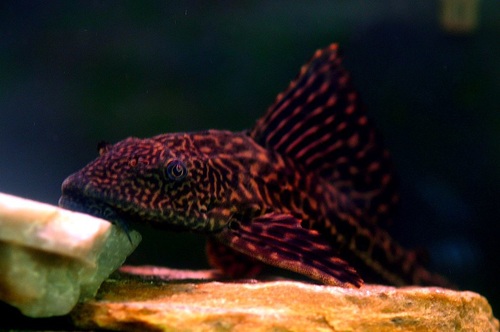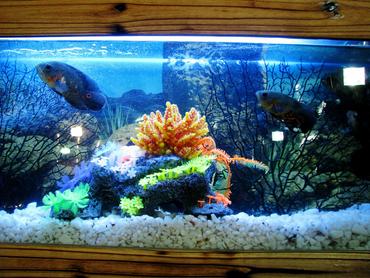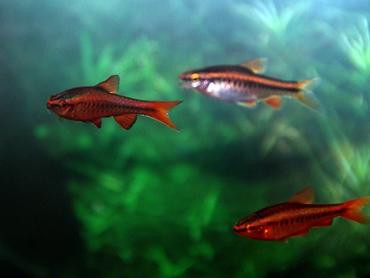PREPARING AN AQUARIUM FOR YOUR VACATION

Updated
Learn how to prepare your aquarium for your upcoming on vacation.
Every once in a while you simply need to get away – take a break from work and the stresses of daily life to go on vacation. But going on vacation can be a source of stress in and of itself if you have to worry about what to do with your pets while you are gone. One of the things people have trouble with is what to do with their aquarium when they leave for vacation. If the aquarium is small enough, you can of course bring it to a friend’s house, but even for something as small as a 10 gallon aquarium, this is not ideal. For tanks larger than 10 gallons, it is pretty much impossible. Do not worry – you don’t have to forego your vacation entirely, there are several things you can do to ensure that your fish get the care they need while you are gone. Below you will find an explanation of these options.
Having a Friend Watch Your Fish
This is the option most used by aquarists. They have a neighbor, family member, or friend watch their tank while they are gone. The fish sitter will come over every day or every other day and feed the fish while also checking to make sure everything is okay. At face value, this sounds like the single best option, but upon closer inspection, having someone watch your fish can lead to disaster.
If you have a friend or neighbor who is very familiar with fish and has their own tank then by all means, have them watch your tank. They will know enough to properly care for your fish. Problems usually occur when you ask someone who has no fish experience to watch your tank. Even though your inexperienced friend will have the best of intentions, he or she can wreak havoc on your tank in a very short time. For one, people tend to overestimate how much to feed fish. You know not to overfeed, but most people will overfeed like crazy if left to their own devices. This will cause huge problems with your water parameters and can easily lead to deaths. If you are having someone watch your fish and know they are inexperienced with fish keeping, your best bet is to use Ziploc bags and put the amount they should feed each day in each bag. They can then just come in your house and dump that day’s bag into the tank. This will ensure that you can monitor how much food is being added to your tank while away.
46 gallons reef tank (mostly live coral and fish)

State: Ohio
Country: United States
MORE INFO
Photo Caption:
40 breeder mixed reef
Fish Kept:
1 Clarks clownfish, 2 domino damsels, 2 azure damsels, 1 black damsel, 1 cleaner wrasse
Corals/Plants:
Zoas & palythoa. Gorgonian, leathers, Kenya tree, mushrooms, montipora, leptoseris, pavona, sponges,
Tank Size:
46 gallons

Another problem with having someone watch your tank is that they often want to mess with things or what I like to call “help too much”. Again, your friend is probably well-intentioned, but they just don’t know better and fiddling around with stuff can lead to some bad consequences. Also, it is generally a very bad idea to have someone perform a water change that does not know what they are doing. They will often take out too much water or forget to do something like add dechlorinator. You are just asking for problems when asking someone to do this.
Pros and Cons of Pet Sitters
Pros:
- doesn’t require you to make any changes to your tank or to relocate it
- allows your fish to continue with the routine to which they have become accustomed
- doesn’t require any changes in the type of food or feeding schedule
- an experienced pet sitter could potentially perform maintenance tasks while you’re away
Cons:
- pet sitter may not be familiar with caring for aquarium fish
- could lead to overfeeding or underfeeding
- pet sitter might tamper with equipment or otherwise damage the tank
- the sitter may not be able to perform maintenance tasks
- requires you to give someone access to your home while you’re gone
If You Don’t Have a Friend Watch Your Tank Then What Are You Supposed to Do?
I can hear you now – “I don’t have any friends with fish keeping experience. What am I supposed to do?” The good news is that you have some options. In fact, the single best option for short vacations of 1-2 weeks is to do absolutely nothing. Fish are constantly overfed because people overestimate how long they can go without food and how hungry they are. Many fish always seem like they are starving (for example, cichlids), but they are not. Fish can go several weeks without food and in fact, many experience aquarists schedule fasting periods for their fish where they don’t feed them for a while in order to clean up their digestive systems. So, if you are only going to be gone for a week or two, use this opportunity to fast your fish. They will be healthier for it and they will be fine while you are gone. Plus, if no one is feeding the fish while you are gone, there is less of a need for worrying about things such as water changes.


If you are leaving your tank alone, there are some things you should do to prepare. First of all, you will probably want to purchase timers for your lights if you don’t have your lights on timers already. Set the tank so the lights are on for 6-8 hours a day. This will keep algae down and should keep your aquarium running smoothly. Before you leave, perform a water change and make sure everything is clean (scrape glass, clean filters, etc.), but of course, do not go crazy and cause your tank to cycle again while you are gone. Use your common routine for cleaning your tank and you will be fine. You just want it to be in good shape before you leave.
It can be a good idea to have a friend come over a couple of times to check on your tank. They can check to make sure none of your fish are dead and just to generally make sure everything looks okay. If they think something is wrong, have them call you so you can walk them through it. Your friend can also help with topping off your water (see previous section on not letting them perform a water change) if you are going to be gone long enough that evaporation becomes a problem. Leave them detailed instructions and put the supplies together by your sink (bucket, dechlorinator, etc.). Your tank will be fine without a water change for the short time you are gone and while topping your tank off is not a good practice in general, it is a safer option in these instances when compared to having your friend perform a water change.
Things to Avoid
The following common practices are best to avoid when going on vacation:
- Vacation Feeders: These are sold at many fish stores and at first, they may seem like a good idea. After all, you can drop them in and feed your fish for days. The problem is that they are not very effective at delivering food to your fish and more often than not, they just end up clouding and polluting your water. Avoid vacation feeders at all costs.
- Automatic Feeders: These are a better option than vacation feeders and can be used in special cases where you have no friends that can watch your tank and you will be away longer than 1-2 weeks, but make sure it is a last resort. The problem with automatic feeders is that they can easily get stuck or malfunction in which case they will either dump a ton of food into your tank or stop delivering food at all. Without you there checking on it from time to time, some pretty disastrous things can occur. If you do have to use one of these, make sure you buy a high-quality one and don’t be cheap. Saving some money now could cost you a ton in dead fish later. Also, be sure to insert brand new batteries into the feeder before you leave on vacation so you can ensure the feeder does not run out of power.
- Overfeeding Before You Leave: Some people think that if they feed their fish a bunch of food before they leave, they will be able to go without feeding them while they are on vacation. As mentioned above, this is completely unnecessary. You can feed them just like you always do and then just go on vacation. They do not need to be overfed and in fact, overfeeding right before vacation will cause problems. It will probably cause water pollution and will be bad for the digestive systems of your fish. Avoid this practice completely.
Vacation Checklist
- Perform a water change and tank cleaning a day or two before you leave
- Monitor tank temperature before you leave to ensure heater is working properly
- Set lights on timer (lights on for 6-8 hours/day
- If you will only be gone for 1-2 weeks, do not worry about feeding
- If you will be gone longer or are having a friend watch the tank, divide up each day’s food amount into Ziploc bags so your friend does not overfeed.
- Leave detailed instructions on how to top off water if you will be gone long enough for this to become a problem
- If you are having a friend come to check on the tank, leave them a list of what to look for (check floor for leaking water, check thermometer to ensure temperature is xx degrees, check for dead fish or fish gasping at the surface, check water level, etc.). In fact, it is best to arrange a quick meeting with your fish sitter before you leave so you can walk them through everything.
- If you are leaving in the summer or winter, be sure your air conditioner or heater is set to an appropriate temperature such that your aquarium heater can maintain the water temperature.
What to do When You Return
After you return home from your vacation, you will likely to be excited to just be home. Before you unpack your suitcase and kick your feet up to relax, however, you should check in on your fish tank to make sure it is still okay. If you hired a pet sitter to care for the tank while you were gone, you may have received updates periodically during your absence. If you chose to let your tank be, however, this may be your first chance to evaluate the condition of your fish and your tank after your absence. At this time you should perform a thorough check of your fish and equipment to make sure that everything is still in working order. Some tasks you should perform immediately include:
- Visual inspection of the tank (check for leaks and ensure that the water level has not gotten too low)
- Check all equipment to make sure it is functioning properly – replace filter media if needed
- Test the aquarium water to check the water quality and chemistry levels (compare to your tank’s “normal” levels)
- Make adjustments to water chemistry as needed, indicated by the results of the water test
- Observe your fish to make sure they are all still alive and well – look for any changes in physical appearance as well as abnormal behaviors
- Perform a 25% water change to remove accumulated toxins from the tank and to improve water quality – be sure to use a gravel vacuum to siphon out accumulated waste from the bottom of the tank
- Refill the tank with dechlorinated water (make sure to match the water temperature in the tank)
- Resume your normal feeding and maintenance schedule
Conclusion
Hopefully, upon performing the checklist of tasks above, you will find that your aquarium survived just fine in your absence. Most aquarium fish are fairly hardy and can thus survive minor changes in water chemistry as well as periods without food. As long as you properly prepare your tank for your vacation, you shouldn’t have to worry about returning home to find a disaster waiting for you.
comments powered by Disqus







































































































































